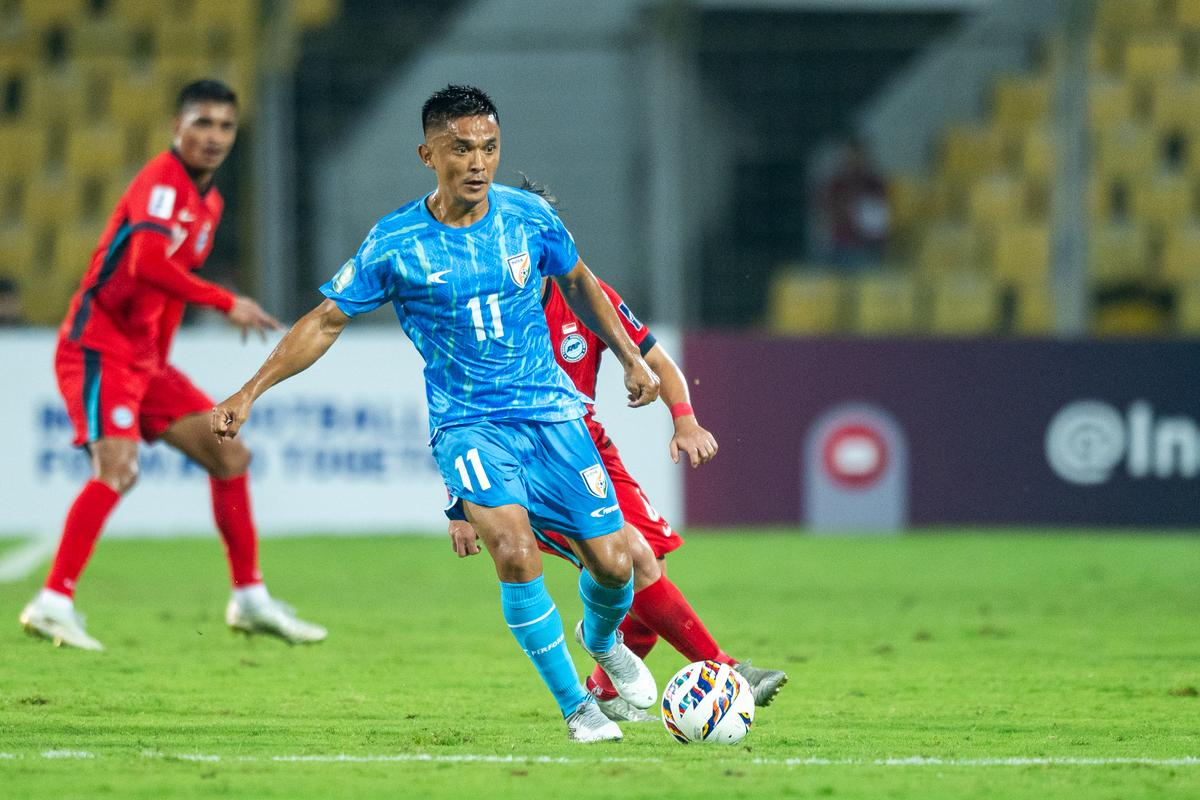AFC Asian Cup 2027 Review: India’s Qualification Heartbreak Rooted in Structural Failings, Not Just One Bad Game


1. Qualification Debacle: A Historic Miss Amid Turmoil
Indian football’s eight months of chaos—two coaching changes, a precarious domestic league, player absences from national camps, and a directionless federation—culminated in its first AFC Asian Cup qualification failure since 2019. Tipped to top Group C (featuring lower-ranked Hong Kong, Singapore, and Bangladesh), the Blue Tigers ended four matches winless, bottom of the table with just two goals. The loss to Singapore in Goa was particularly grim, with only 10% of the 19,000-capacity stadium filled, signaling a worrying decline in fan engagement.

2. Coaching Upheaval: Marquez’s Frustration and Jamil’s Last-Gasp Hire
- Manolo Marquez’s Short Tenure: The former head coach resigned in July 2024 (less than a year in charge) after India’s first loss to Hong Kong in 15 years. He cited inconsistent rules (e.g., naturalization processes) as a key issue, telling Marca, “This isn’t the place for you.” Players knew it would be his final game three days before the June Hong Kong away match.
- Khalid Jamil’s Appointment: Seen as a desperate move by the federation, Jamil was chosen for his strong player communication, track record of turning underdogs into contenders, and ability to work with limited resources without complaint. Unlike predecessors Igor Stimac and Marquez, he avoids public criticism of Indian football’s governance.
3. Tactical Chaos and Squad Instability
Jamil’s arrival mid-qualifiers brought an abrupt tactical shift: from Marquez’s possession-based style to a defensive setup, shattering team continuity. Across four matches, 38 players were called up, with 18 changes to starting lineups since the March Bangladesh fixture. Further hurdles included the ISL’s uncertain future, players arriving at Jamil’s first August camp without proper pre-season training, and Mohun Bagan refusing to release players during the FIFA window. Jamil acknowledged the challenges: “We will adapt with the players we have.”

4. Brief Optimism: The CAFA Nations Cup Bright Spot
A rare positive came in the eight-team CAFA Nations Cup, where India finished third. They secured positive results against Tajikistan and Oman, and pushed Iran to a tight contest—briefly reviving hope ahead of the crucial Singapore double-header.
5. Persistent Issues: Player Absences and Late Call-Ups
Problems lingered ahead of the Singapore matches: 14 of the 23 traveling squad members failed to report on the first day. Notably, Rahim Ali, Subhasish Bose, and Lalengmawia Ralte—who impressed against Singapore—were not part of Jamil’s original probable squad. Lalengmawia, India’s top all-round midfielder, was only added three days before the home game, raising questions about delayed recognition of his quality.

6. On-Field Struggles: Attack vs. Defense and Fatigue
Jamil delivered on his promise of attacking football in his first home match, with the team showing purpose and energy. However, fatigue soon undermined their intensity, leading to errors. Jamil blamed the issues on a lack of top-tier match practice: “We tried to call players early, but couldn’t due to many problems. We had to resolve it.” Post-Singapore loss, he revealed his defensive preference: “I prefer defending more—we attacked and lost. For me, the result matters most.”
7. Jamil: Not a Scapegoat, But in Need of Support
Critics should not single out Jamil for the failure. Before his appointment, India scored more than one goal in just 1 of 15 matches (a 3-0 win over the Maldives) and failed to score in 10. The CAFA Nations Cup and Singapore home match showed his potential to rebuild a disciplined, low-block side— but he needs institutional backing to succeed.

8. Sunil Chhetri’s Uncertain Future
The 40-year-old remains in the squad, with Jamil defending his inclusion: “He is one of the best strikers we have.” However, with two meaningless “dead rubber” matches left, Jamil was non-committal about Chhetri’s international future: “This isn’t the right time to talk about Chhetri.” A decision is imminent, as the next World Cup and Asian Cup qualifiers are two years away.
9. Structural Failings: The Root of India’s Woes
The core issues lie in systemic problems: no clarity on the ISL and I-League’s status, with domestic football potentially inactive for three international windows. Federation mismanagement—including inconsistent rules and club vs. national team disputes—has deepened the crisis. The warning is clear: without decisive action, this qualification failure will become the norm, not an exception.
